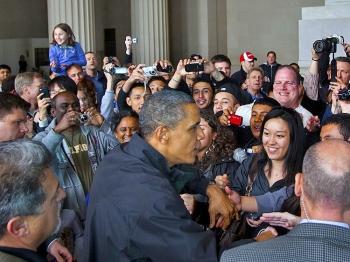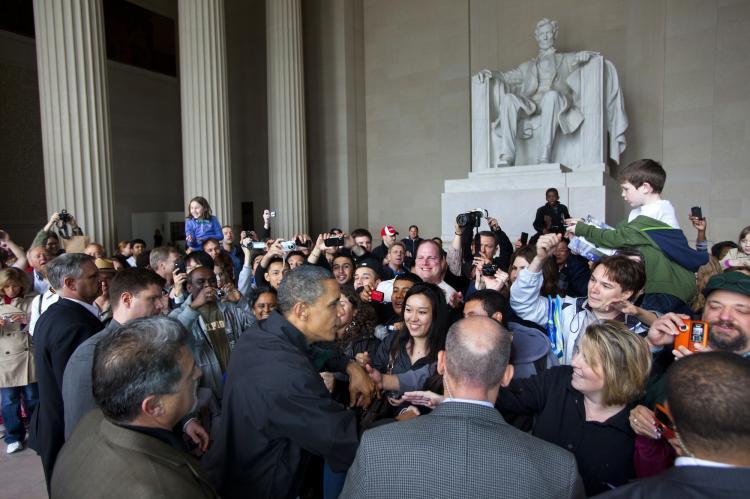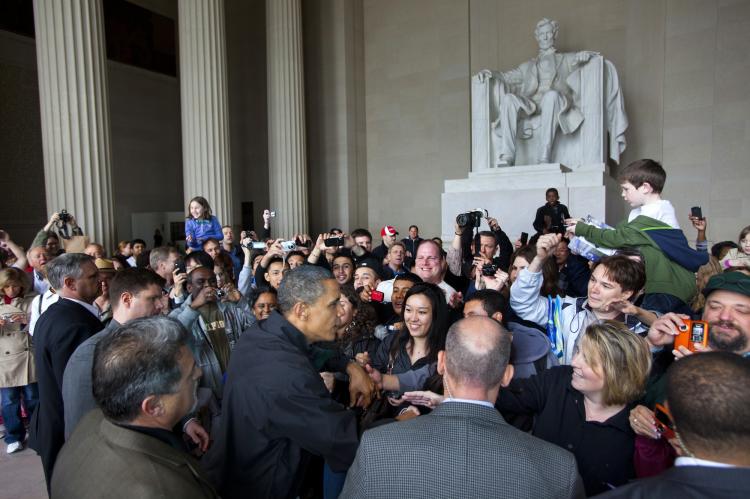The 11th hour move to avert a government shutdown on April 8 was too close a call for members of the military. The agreement cut the government budget by $38.5 billion.
As the clock ticked on April 8, interest-free loans to cover basic living expenses were offered to members of the Air Force by the Air Force Aid Society (AFAS). The loans would have given them the means to weather a government shutdown.
Just following the averted incident, the U.S. Army published an article on the importance of saving money. It relayed that “While the government shutdown was avoided April 8, it serves as a stark reminder for the need to save money for a rainy day.”
Their concerns came with good reason. Had the government shutdown gone through, close to 400,000 Department of Defense (DOD) employees would have been furloughed.
President Barack Obama announced the deal close to an hour before the shutdown would have happened, according to the Pentagon’s American Forces Press Service. All but the essential government services would have frozen.
The last government shutdown was in 1996, and the shutdowns have typically lasted around 20 days.
“In the final hours before our government would have been forced to shut down, leaders in both parties reached an agreement that will allow our small businesses to get the loans they need, our families to get the mortgages they applied for, and hundreds of thousands of Americans to show up at work and take home their paychecks on time, including our brave men and women in uniform,” Obama said, in a White House transcript.
The crisis is not completely past, as it included a short-term funding resolution until April 14, but the decision removed a weight from the shoulders of federal employees.
As the final deadline for the budget approached, many went to work on April 8 not knowing whether they’d see a paycheck the following week.
“For feds, the deal means an end, for now, to a couple torturous months of negotiations, warnings of shutdowns and reprieves from shutdowns supplied by a series of continuing resolutions,” states a report from Government Computer News, a news source of the Government Information Group.
The worst of spending debates may be still to come, however, as eyes shift toward a long-term budget. House Budget Chairman Paul Ryan (R-Wis.) stated, “We must now move from saving billions to saving trillions,” according to a report from advocacy organization FreedomWorks.
It states that overspending is increasing national debt at an alarming rate: $200 million an hour, adding up to $1.6 trillion a year.
“This is the most urgent fiscal issue of our time,” states the report.
Although the budget cut was called the largest in U.S. history, it amounts to 1 percent of the $3,819 billion budget. The original proposal from the House included a cut of $61 billion, notes David Boaz in the official blog of Encyclopedia Britannica.
“The fundamental point here is that federal spending rose by more than a trillion dollars during Bush’s first seven years, and then by almost another trillion in barely three fiscal years. And then we had a titanic battle over whether to trim $38 billion,” it states.
As the clock ticked on April 8, interest-free loans to cover basic living expenses were offered to members of the Air Force by the Air Force Aid Society (AFAS). The loans would have given them the means to weather a government shutdown.
Just following the averted incident, the U.S. Army published an article on the importance of saving money. It relayed that “While the government shutdown was avoided April 8, it serves as a stark reminder for the need to save money for a rainy day.”
Their concerns came with good reason. Had the government shutdown gone through, close to 400,000 Department of Defense (DOD) employees would have been furloughed.
President Barack Obama announced the deal close to an hour before the shutdown would have happened, according to the Pentagon’s American Forces Press Service. All but the essential government services would have frozen.
The last government shutdown was in 1996, and the shutdowns have typically lasted around 20 days.
“In the final hours before our government would have been forced to shut down, leaders in both parties reached an agreement that will allow our small businesses to get the loans they need, our families to get the mortgages they applied for, and hundreds of thousands of Americans to show up at work and take home their paychecks on time, including our brave men and women in uniform,” Obama said, in a White House transcript.
Overspending
The crisis is not completely past, as it included a short-term funding resolution until April 14, but the decision removed a weight from the shoulders of federal employees.
As the final deadline for the budget approached, many went to work on April 8 not knowing whether they’d see a paycheck the following week.
“For feds, the deal means an end, for now, to a couple torturous months of negotiations, warnings of shutdowns and reprieves from shutdowns supplied by a series of continuing resolutions,” states a report from Government Computer News, a news source of the Government Information Group.
The worst of spending debates may be still to come, however, as eyes shift toward a long-term budget. House Budget Chairman Paul Ryan (R-Wis.) stated, “We must now move from saving billions to saving trillions,” according to a report from advocacy organization FreedomWorks.
It states that overspending is increasing national debt at an alarming rate: $200 million an hour, adding up to $1.6 trillion a year.
“This is the most urgent fiscal issue of our time,” states the report.
Although the budget cut was called the largest in U.S. history, it amounts to 1 percent of the $3,819 billion budget. The original proposal from the House included a cut of $61 billion, notes David Boaz in the official blog of Encyclopedia Britannica.
“The fundamental point here is that federal spending rose by more than a trillion dollars during Bush’s first seven years, and then by almost another trillion in barely three fiscal years. And then we had a titanic battle over whether to trim $38 billion,” it states.







